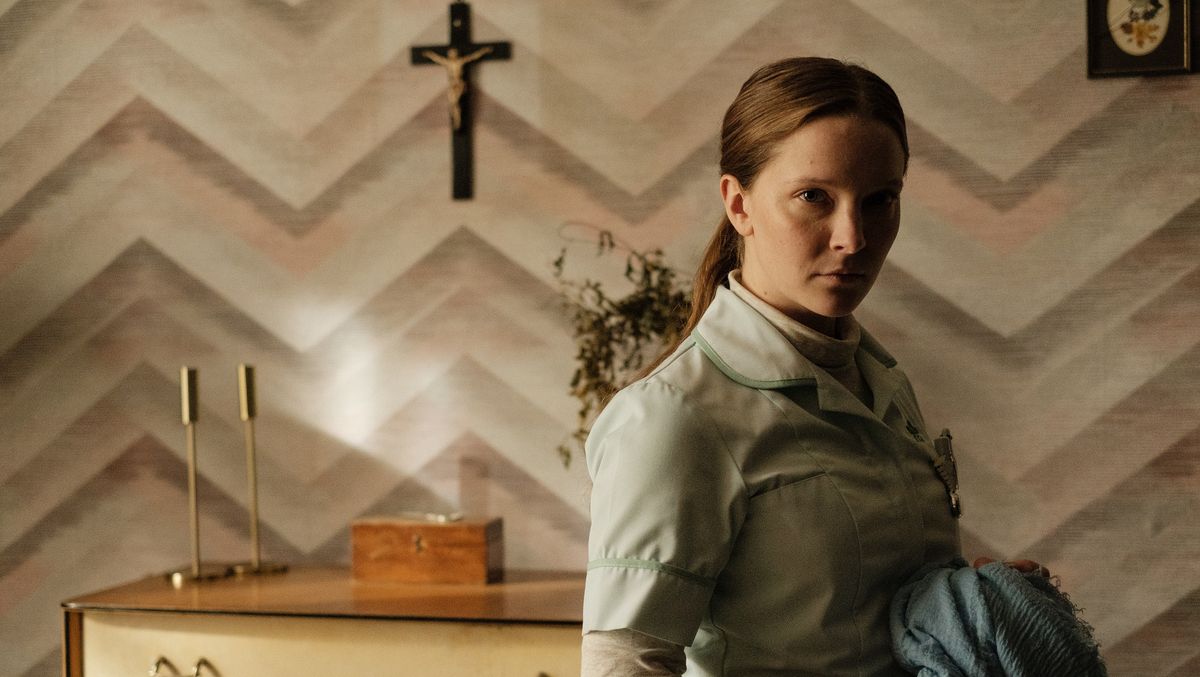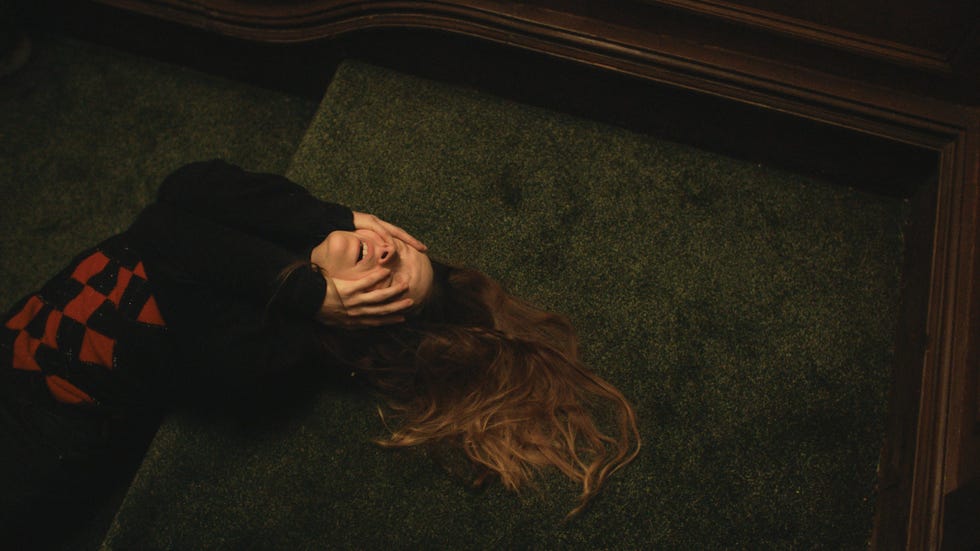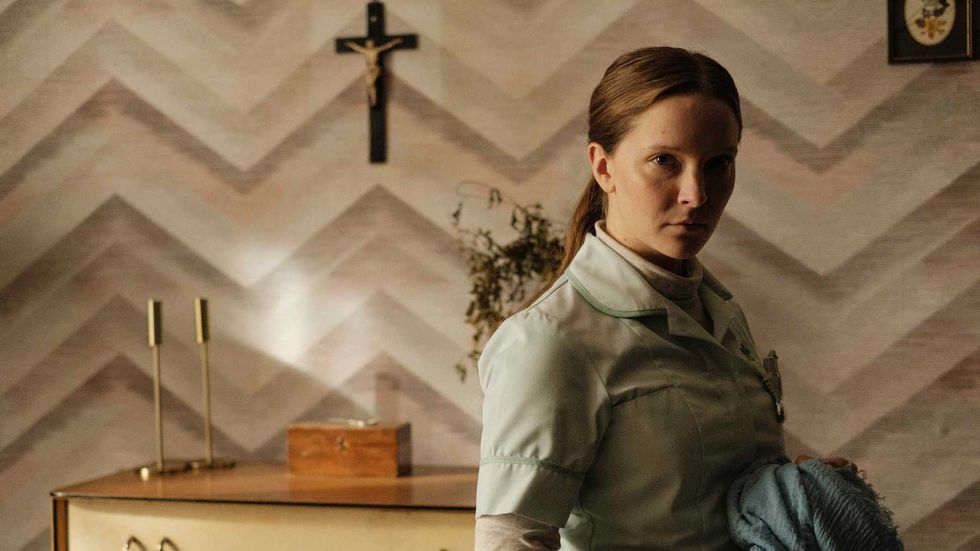Profiled in Esquire at the beginning of this year, British writer-director Rose Glass declined to categorise her debut feature, the startling Saint Maud, in the newish genre “elevated horror”. This is the flimsy descriptor applied to the recent outbreak of arty shockers, such as those made by Jordan Peele (Get Out, Us), Robert Eggers (The Witch, The Lighthouse) and Ari Aster (Hereditary). Saint Maud certainly fits the bill — there’s even a memorable scene in which a character defies gravity to float above her dingy bedsit, in a position I’m afraid I can only reasonably describe as “elevated” — but Glass is unpersuaded.
“Sounds a bit snobby to me,” the Essex-bred filmmaker told our interviewer.
This no-nonsense attitude is apparent in her appealingly concise and pointed film, which manages to be both a traditional genre movie, richly informed by films of the past, so that cineastes will be able to play the tiresome game of spot the reference (Polanski blah, Bergman blah blah), as well as a superbly fresh and witty take on those traditions: the descent — yes, via staircases — from humdrum mental disturbance into spectacular, hair-raising psychosis — or spiritual transcendence, if you’re that way inclined.
Saint Maud concerns a pious young nurse with a frightening sense of mission, played with remarkable poise, even grace, by newcomer Morfydd Clark. At the beginning of the film Maud finds a new patient and, to her morbidly impressionable mind, a new project: Amanda, a once famous dancer, now in the advanced stages of terminal cancer. Still camply glamorous, but also brittle and needy, Amanda is played, quite magnificently, by Jennifer Ehle. Again in the best tradition, she haunts a lonely house, with dodgy wiring, on a hill above a seedy British seaside town. (Scarborough, which, sorry to report, doesn’t come out of Saint Maud especially well.) Occasionally visited by lovers male and female, who indulge her fantasy life of giddy haute bohemian bacchanal, most of the time she is alone but for Maud, and suddenly the elegant interiors seem dangerously crepuscular.
What follows is a film made with ferocity, style and control, Glass demonstrating impressive command of her material at every turn, from grimy social realism to flamboyant psychological horror to apocalyptic revelation. Saint Maud’s portrait of provincial Britain off its meds — drink-sodden, poverty-stricken, brutalising and alienating — is as bracing as a plunge into the North Sea. Bad sex, perverted religion, untreated madness, impending death, William bloody Blake: Glass chucks it all in the pot and watches it bubble. Her film is frequently funny — I don’t know what language your personal deity speaks, but when we are allowed to listed to Maud’s God, I wasn’t the only person laughing in the dark — as well as scary. The score, by Adam Janota Bzowski, is particularly tormenting.
“My little saviour,” Amanda calls her nurse at one crucial moment. It’s a bit much to put on a disturbed young woman, frankly, and the results aren’t ideal. It’s a bit much to apply the same phrase to a modestly budgeted British horror film, elevated or otherwise, but if anything can persuade audiences to get off their sofas and return to cinemas, where films such as this one should really be seen, then Saint Maud might be it. It’s a film best watched with the lights off, and no distractions, in the company of one’s fellow movie lovers. For much of it, so transported was I by Maud’s story that I completely forgot I was wearing a creepy face mask throughout.
Saint Maud is released in cinemas on 9 October.
Like this article? Sign up to our newsletter to get more articles like this delivered straight to your inbox
Need some positivity right now? Subscribe to Esquire now for a hit of style, fitness, culture and advice from the experts














